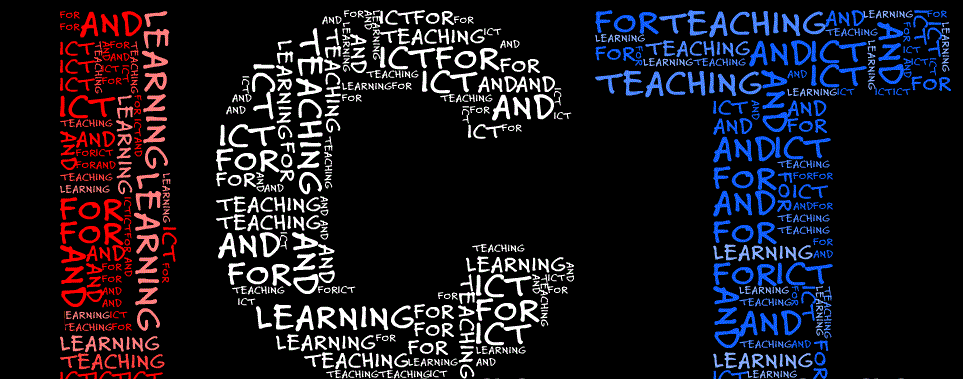
Introduction
Now we are facing the global health crisis caused by COVID-19. Most of the countries in the world are asking people to stay home to prevent the spread of the virus. Following the recommendation of WHO, the Government of Nepal also ordered lockdown on March 23, 2019. The lockdown is going on and it is not certain that when it will be lifted. On the 15th June 2020, the Government of Nepal changed the modality of the lockdown and is loosely monitoring it. The lockdown has been eased to increase economic activities. As a result, the government offices, industries, shopping centres are carefully operated with some preventive measures. However, there is much uncertainty over schools and universities reopening. This article reflects on the effect of the global pandemic on education and the possibilities it opens up for the transformation of teaching-learning in Nepal, especially in the rural area where access to information and communication technology is limited. The rhythm of educational activities has been seriously altered because of the lockdown. Robert (2020, June 11) reported a deep learning crisis worldwide as about 1.5 billion students have been taking measures for COVID-19 prevention as the schools have shut down. All countries are making an effort to combat the COVID-19 and normalise people’s lives including education sectors.
Tribhuvan University, the oldest and largest university of Nepal, decided to adopt online teaching as an alternative teaching mode. Other universities followed similar practices. Nepal Open University based on online learning mode has been normally operating all academic activities. It has been observed that the majority of university students except Nepal Open University are scattered across the country and locked where they had been before the commencement of the lockdown in the country. They are unable to communicate with their university colleges and are probably waiting the day when their colleges will reopen for academic activities. The majority of undergraduate and school students are outside the coverage of online learning, especially in rural areas. Although some campuses have started online classes for Bachelors and Masters students, a large number of students are unable to join such classes because of lack of internet access and digital devices.
Although I have created a Google class for my students to extend learning space beyond four walls of the classroom before the pandemic, only few students used to visit it. Now they come to join Google classroom or ZOOM meeting more frequently although some students are unable to join my online classes. It is too early to forecast the effectiveness of online class for my students. We are experimenting with new learning technology. I am fortunate in the sense that I can apply my experience of studying in online and blended learning mode. I had done an online teacher training course from the University of Oregon and I am doing M. Phil at Nepal Open University. Now I am using my experience of remote learning to shape my online teaching practices.
To continue teaching-learning during the lockdown, many countries in the world have used radio, television, mobile technology or home delivery of printed materials to help students in their self-learning activities at home during COVID-19 (Robert, 2020, June 11). The government of Nepal has implemented alternative learning system for students grouping them into five categories: students outside the access of any technology, students with access to radio, students with access to TV, students with access to computer and students with access to computer and internet. The government has instructed to provide learning opportunities to all students at their home with the appropriate mode of delivery using print, audiovisual and online resources (Ministry of Education Science and Technology, 2020). The guidelines recognised online teaching as one of the teaching-learning modes.
I have observed high enthusiasm among the teachers in virtual space when the schools and campuses are shut down. Teachers are making attempts to reach to their students through various media on one hand and they are learning digital and pedagogical skills through online conference and training. Teachers have participated in professional development activities organised by various organisations. I frequently get an invitation to attend such opportunities. For example, I had three invitations on Facebook to participate in join online teacher training sessions on zoom. I have observed that many teachers are ready to teach online. However, limited access to ICT in rural areas prevents teachers to go online teaching immediately.
It seems that the teaching-learning continues with this alternative teaching mode for a few months. The face-to-face mode of learning will resume when the global health crisis will be resolved and school classes become safe. By the time the pandemic is over, I guess that more teachers will acquire digital and pedagogical skills and more teachers and students will have access to digital technology. Teachers are unlikely to unlearn the skills they learn during the pandemic as Robert Franek notes (Dickler, 2020, May 20). Kim (2020, April 1) predicts that in post-pandemic situation blended learning will rapidly increase and the top priority of educational instructions and that professional development of teachers will be geared up to integrate ICT in teaching-learning rather than outsource agencies to provide online learning.
I am not much hopeful that Kim’s prediction comes true in our context. However, I believe that, when school will resume, thousands of teachers will use some of the digital skills for teaching they acquired during the pandemic period. However, the actual use of these skills depends on available technology and school administrative policy. I believe that teachers teaching in rural schools will also continue with the use of ICT. I see the following possibilities in ICT integration in education in Nepal in post-COVID-19 era.
- The Federal and local government will invest more in ICT infrastructures in remote areas. More schools will get access to the internet which will open a new venue for teaching-learning.
- Teachers will continue to attend virtual conference, training and seminar regardless of their location. The frequency of online professional training will increase.
- The government can provide virtual training so that teachers can balance time for teaching and participating in the training. This will save time and expenses for attending the training.
- The training centre can hire experts drawing from the wider pool of experts easily and teachers can study at home.
- Teachers can teach or take part in school meeting when they are away from school for personal or professional responsibilities.
- Teachers can invite more experienced teacher as a guest teacher in their class through video conferencing.
- Teacher and students can share class notes and other digital resources on the virtual classes which will save more time for class discussions.
- Teacher and students can have a virtual discussion during long holidays or examination times.
- Teachers can support the students who cannot attend face-to-face class because of illness or other reasons.
- Teachers will share, collaborate and create digital teaching-learning.
- Teachers are likely to observe other teachers’ virtual class which will enhance their pedagogical skills.
Conclusion
The global health crisis has forced teachers and students to stay at home. The use of ICT tools for teaching and learning in online mode has become an alternative mode instead of traditional face-to-face mode to prevent the spread of corona virus. ICT has drawn the attention of teachers, students, parents and educators. Despite the fact that many students in Nepal are unable to get access to virtual classes due to lack of ICT infrastructure, many teachers are trying to utilise internet and other available resources to meet the current needs of students. It is evident that the use of ICT will continue to grow in the post-COVID-19 era in Nepal by opening several possibilities.
Krishna Prasad Parajuli is a lecturer of English Education at Drabya Shah Multiple Campus, Gorkha. He is the Vice-Chair of NELTA Gorkha and a member of IATEFL. He is an M.Phil scholar of English Education at Nepal Open University.
Reference
Dickler, J. (2020, May 20). Post-pandemic, remote learning could be here to stay. https://www.cnbc.com/2020/05/20/post-pandemic-remote-learning-could-be-here-to-stay.html
Kim, J. (2020, April 1). Three post-pandemic predictions.
Ministry of Education Science and Technology. (2020). Alternative learning system implementation guidelines 2020. https://moe.gov.np/article/1323/html
Robert, J. (2020, June 11). Opinion: Reimagining education — this is the moment to think big. Devex. https://www.devex.com/news/opinion-reimagining-education-this-is-the-moment-to-think-big-97405
Cite as: Parajuli, K. (2020, July). Expectations of post-COVID-19 era education in Nepal. https://eltchoutari.com/2020/07/expectations-of-post-covid-19-era-education-in-nepal/
 Dear teachers, educators and learners,
Dear teachers, educators and learners,